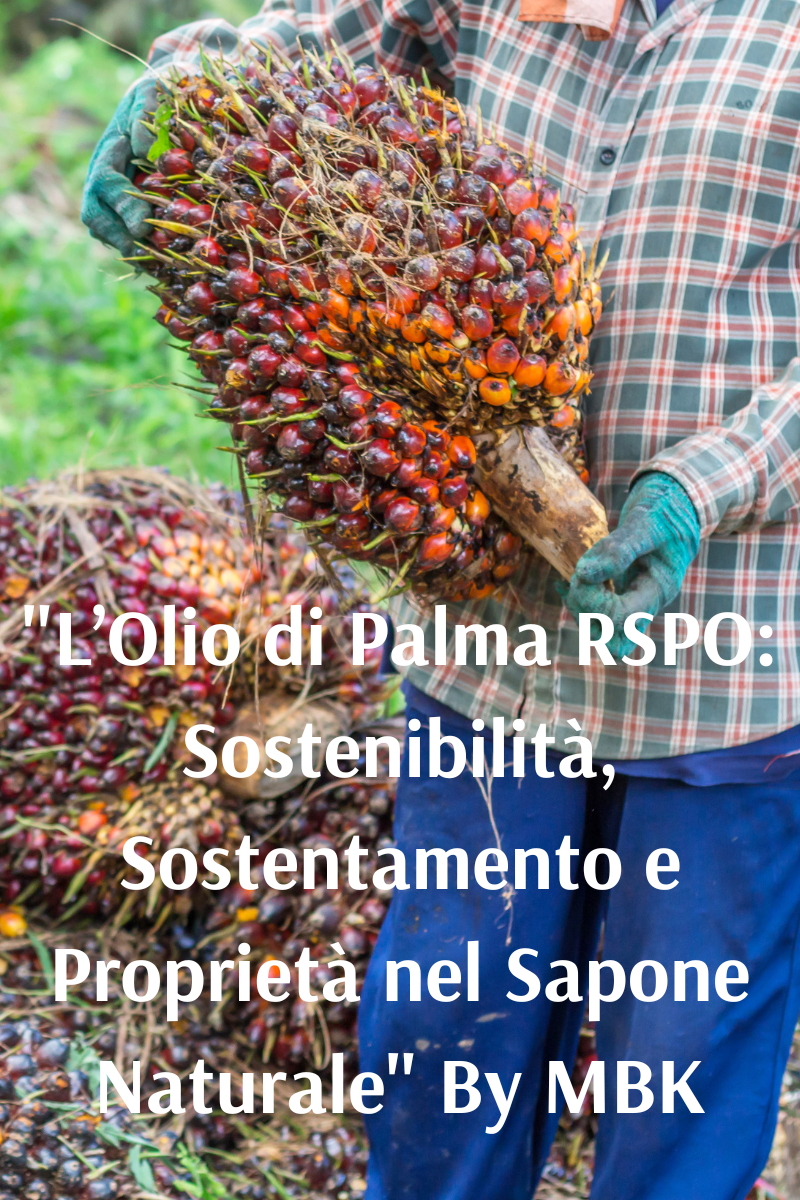
"RSPO Palm Oil: Sustainability, and Properties in Natural Soap" By MBK
Share
Palm oil is one of the most controversial ingredients globally, especially for its environmental and social implications. However, a key aspect to consider is that, for many people, palm oil represents the only source of income. In particular, the RSPO (Roundtable on Sustainable Palm Oil) certification is one of the tools that seeks to reconcile the economic needs of local populations with the need for responsible production.
What is RSPO and Why is it Important?
The RSPO is an initiative that certifies palm oil produced according to sustainability criteria, which include the protection of forests, respect for human rights and the promotion of responsible agricultural practices. Although certification does not solve all the problems related to the industry, it represents an important step towards a more ethical use of this resource.
Palm Oil as a Livelihood
For many smallholder farmers in tropical countries, palm oil cultivation is their only source of income. The alternative to this source of income is often neither economically nor socially sustainable, which makes it essential not to demonize palm oil altogether . Instead, we need to focus on the quality and provenance of the oil. RSPO certification, despite its challenges, represents a commitment to ensuring that these crops are respectful of the environment and local communities.
Palm Oil in Natural Soap: Properties and Benefits
One area where RSPO certified palm oil plays an important role is in the production of natural soaps. Due to its composition, palm oil offers numerous benefits: it is an excellent emollient, making the soap solid and long-lasting. In addition, it has excellent moisturizing properties, which make it ideal for dry and sensitive skin, helping to create a high-quality product that does not compromise the health of the skin.
The Cost of RSPO Palm Oil
One aspect to consider, however, is the cost: RSPO certified palm oil is about 30% more expensive than conventional palm oil. This reflects the greater commitment to responsible agricultural practices, but also the costs of monitoring and certification. Although this may affect the final price of the products, the higher cost represents an investment in more sustainable practices and in improving the living conditions of local populations.
In conclusion...
RSPO palm oil should not be seen as an enemy, but as a resource that, if produced responsibly, can contribute to the well-being of communities and environmental balance. Especially in the production of natural soaps, its properties are an added value, offering a quality product without compromising ethics. It is crucial that consumers and producers continue to make conscious choices, favoring certified palm oil to promote a more sustainable future for all.
Thank you for coming this far. We hope you enjoyed the article. Love, MBK
